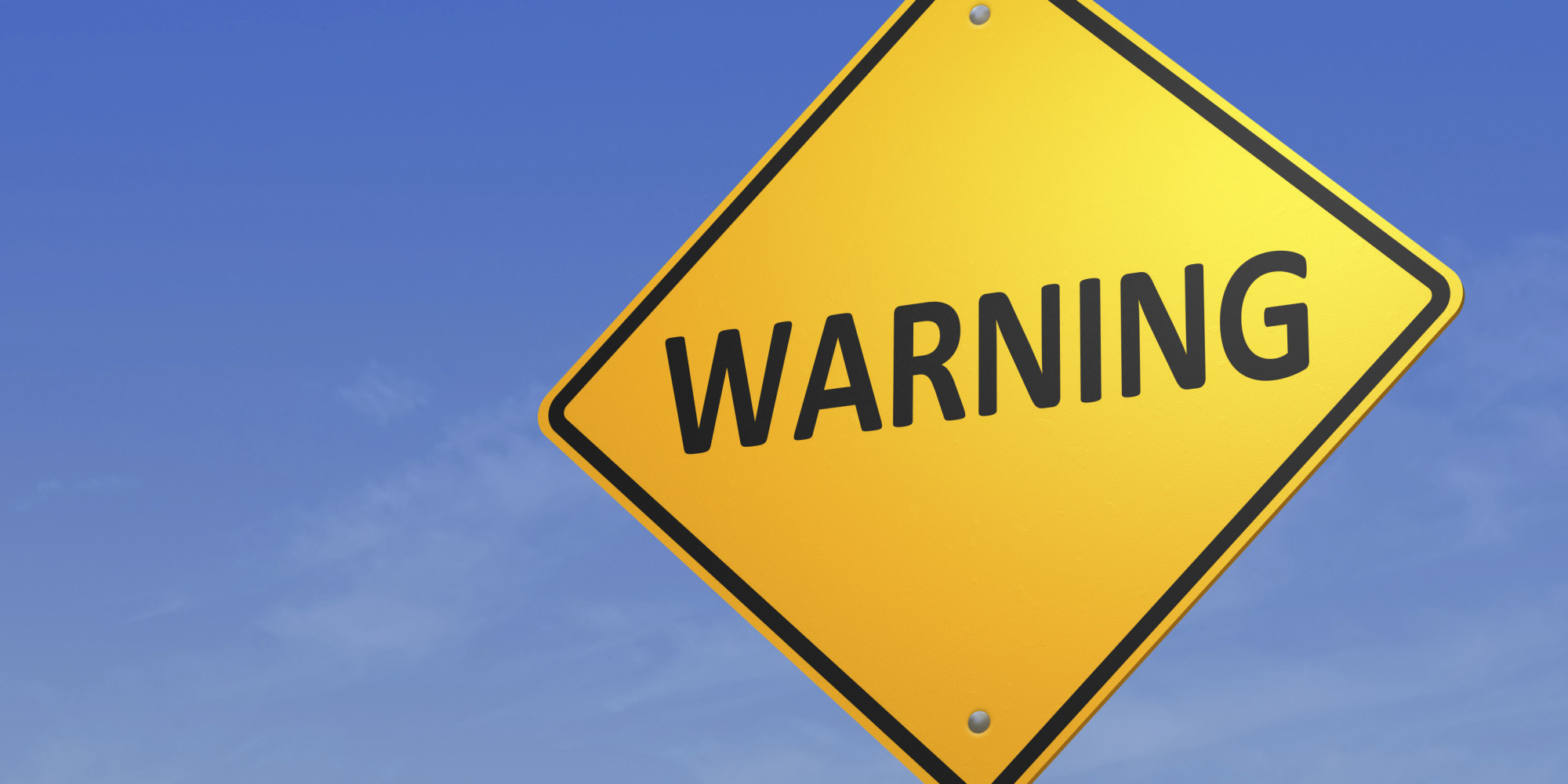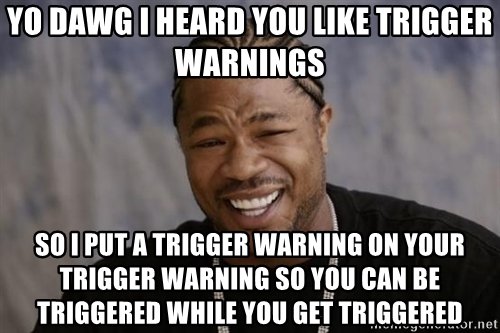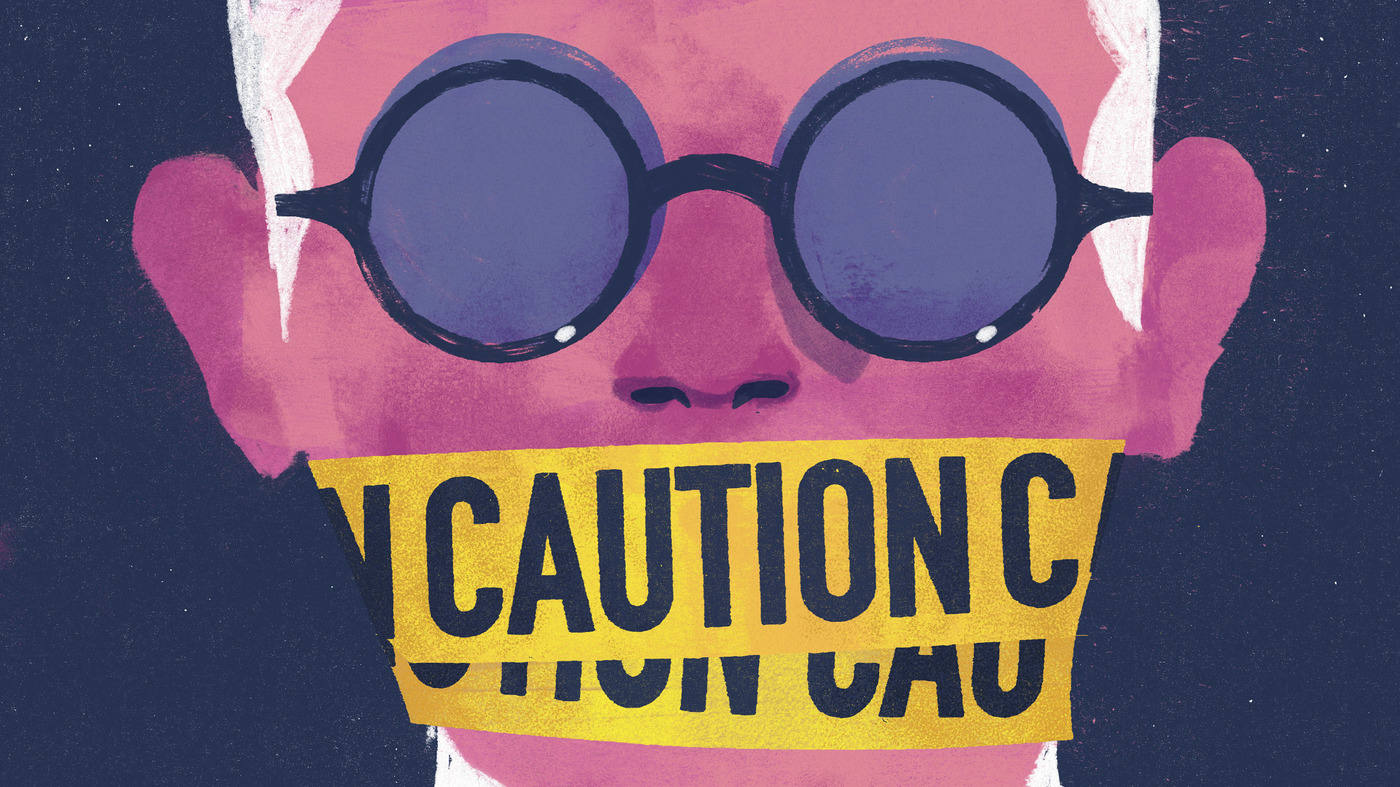According to Merriam-Webster, trigger warnings are “statements cautioning that content (as in texts, videos or classes) may be disturbing or upsetting.” On the contrary, trigger warnings to Urban Dictionary are “unnecessary 100 percent of the time due to the fact that people who are easily offended have no business randomly browsing the internet anyway.”
If you’ve been breathing for the past year or so, you’ve probably come across the term “triggered” on social media, usually used in a joking matter. Recently, young people have gotten ahold of this and managed to turn it into a meme. I am unfortunately a part of this generation.
Although the term has had a shift in its meaning, the origin of the use of trigger warnings was to warn those who suffer from PTSD because it may cause them to relive a traumatic event. Obviously, when used correctly, there is nothing wrong with placing a trigger warning on your Instagram video or Twitter post.
For example, it would be completely appropriate to place a warning on an extremely graphic image or video. However, is it necessary to place a warning on, say, an Instagram caption about eating disorders? The short answer is no. That’s not exactly your responsibility.
Millennials, aka the offended generation, have started and maintained this unfortunate trigger warning trend in recent years.
For instance, I can post an Instagram story of me on top of a cliff with a stunning view, and Sensitive Sally will come at me and say, “You should really be more considerate of those who have a phobia of heights. I’m triggered.” If everyone catered the content they post to possible irrational triggers, social media wouldn’t be social media, now would it?

Recently, I was scrolling through Instagram, and I came across a post by a girl who was promoting her friend’s clothing brand. The clothing brand was inspired by the founder’s father, who suffered from depression and unfortunately committed suicide.
The girl I follow, who was simply helping out a friend by giving a quick promo, received hate from her followers because they felt as though there should have been a trigger warning on that post. Am I the only one seeing the problem here?
I’m not saying mental illness is a light subject because it shouldn’t be joked about. However, the issue at hand is the fact that people are asking for too much and would rather be babied through social media with trigger warnings without understanding that things do not revolve around their emotions.
Do you think the girl making the post was thinking about the feelings of everyone else? Absolutely not. She was just sharing a brand with a good cause. If she was intentionally trying to be offensive, then that would be a different story, but that wasn’t the case.
Everyone is going to get their feelings hurt at one point or another, and that’s okay. For example, as a vegan, I don’t comment on pictures of people’s steak dinner just to say, “I’m a vegan, and I’m triggered by your meal. You should really be considerate of all vegans to ever exist and place a trigger warning if you’re going to post a photo like this.”
At the end of the day, I think everyone should grow some balls because it’s 2018, and being offended is damn near trending. Even writing this article, I’m almost watching what I say because I could offend someone. Just know that when it comes to that fact, my mood is the eye roll emoji.
Quite frankly, you can’t go out in the world with a protective shield on, and you can’t successfully hide from feeling uncomfortable all the time. As a matter of fact, facing your fears or being aware that people are talking about a subject you don’t like is important for your mental well-being.
It doesn’t mean you have to agree whatsoever; it just means you should acknowledge and respect it.

I don’t exactly blame these Sensitive Sallys because it’s true that compared to baby boomers, millennials have a much higher rate of mental illness and anxiety. Why is this exactly?
The level of technology millennials have grown up with is something baby boomers couldn’t have imagined back then. Perhaps growing up behind a screen has been detrimental to our mental and emotional health.
To further that perspective, many young people don’t see life as it is; instead, they view it with a distorted lens and prefer to stay within that viewpoint so that as soon as something doesn’t look right, rejection takes over and defense mode is turned on.
To get super philosophical on you, Buddhists practice the art of non-attachment, which results in a mental and emotional release. I’m not saying you need to move to a faraway land and become a monk to practice this, but you can implement small shifts in your behavior to benefit your peace of mind.
All in all, if you are the type of person who is requesting a trigger warning on something that does not necessarily need a trigger warning, take a step back, and just think critically about the situation. Are you taking offense just for the sake of being offended, or was the post genuinely out of line? Because honestly, your emotions are triggering me.

















